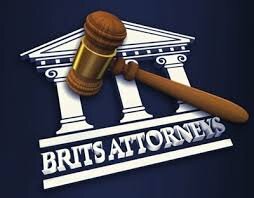Best Foreclosure Lawyers in Alberton
Share your needs with us, get contacted by law firms.
Free. Takes 2 min.
Free Guide to Hiring a Real Estate Lawyer
List of the best lawyers in Alberton, South Africa
About Foreclosure Law in Alberton, South Africa
Foreclosure is a legal process that occurs when a borrower fails to repay a home loan or mortgage. In Alberton, South Africa, foreclosure allows the lender, typically a bank or financial institution, to repossess and sell the property to recover the outstanding debt. This process is governed by South African law and can have significant consequences for homeowners, including the loss of their home and a negative impact on their credit record. Understanding the foreclosure process is crucial for individuals facing financial difficulties or struggling to make home loan payments in Alberton.
Why You May Need a Lawyer
Dealing with foreclosure can be complex and emotionally challenging. Lawyers experienced in foreclosure matters provide essential guidance and support in a variety of situations, such as:
- Receiving notifications from your bank regarding missed payments or the starting of foreclosure proceedings
- Not understanding your legal rights or obligations as a property owner
- Needing assistance to negotiate payment arrangements or debt restructuring with your lender
- Wanting to challenge or defend foreclosure proceedings if you believe they are unjustified
- Facing harassment or unfair practices from lenders or debt collectors
- Needing help navigating the court processes involved in foreclosure
- Seeking alternatives to losing your property, such as voluntary surrender or sale in execution
A lawyer can explain your options, protect your interests, and maximize the chances of reaching a favorable outcome.
Local Laws Overview
Foreclosure in Alberton is primarily governed by national South African laws, particularly the National Credit Act and the Uniform Rules of Court. Key aspects include:
- Foreclosure must generally follow a legal procedure, with proper notification and adherence to the court process.
- Before initiating foreclosure, the lender must provide the debtor with a formal notice and allow a period to remedy the default.
- Once court proceedings commence, the debtor has the right to oppose the foreclosure in court and present their case.
- The court considers factors like the outstanding debt, the owner’s circumstances, and the proportionality of losing a home.
- If foreclosure is granted, the property is typically sold at a public auction (sale in execution), with proceeds used to pay the outstanding debt.
- Any excess funds after debt settlement are returned to the homeowner, but if the sale does not cover the full debt, the borrower may still owe the balance.
- Government measures and court judgments sometimes provide for debt review or restructuring as alternatives to foreclosure.
These laws aim to strike a balance between the rights of the lender to recover their money and the rights of homeowners to fair treatment and adequate housing.
Frequently Asked Questions
What is foreclosure?
Foreclosure is a legal process in which a lender takes possession of a property due to the owner’s failure to keep up with mortgage payments.
How long does the foreclosure process take in Alberton?
The process can take several months, depending on court schedules, legal challenges, and whether the homeowner engages with the process. The timeline varies from case to case.
Will I lose my home immediately after missing a payment?
No, foreclosure is not immediate. There are legal steps and notifications required before the lender can apply to court for foreclosure.
What are my options if I receive a foreclosure notice?
Options may include paying the arrears, negotiating a payment arrangement, applying for debt review, selling the property, or defending the foreclosure in court.
Can I stop a foreclosure once it has started?
It may be possible to stop or delay foreclosure by settling your arrears, reaching an agreement with your lender, or presenting a defense in court. Legal advice is strongly recommended.
Will I still owe money if my home is sold at auction?
If the sale does not cover the entire outstanding debt, you may still be liable for the shortfall unless otherwise agreed with the lender.
Do I have to leave my home immediately after foreclosure?
Typically, the court will allow a period for you to vacate the property. Unlawful occupation after that period may result in eviction proceedings.
What is debt review and can it help me avoid foreclosure?
Debt review is a legal process designed to help over-indebted consumers restructure their debts. Entering debt review may halt foreclosure while a new payment plan is arranged, but every situation is unique.
Can I sell my home privately to avoid foreclosure?
Yes, selling your property privately before a court-ordered auction can be a solution. This may allow you to settle your debt and avoid the foreclosure stigma.
Should I consult a lawyer even if I have not yet received a court summons?
Yes, seeking legal advice as soon as you experience difficulty with payments or receive any notice from your lender can help you understand your rights and options early on.
Additional Resources
If you are dealing with foreclosure in Alberton, consider reaching out to the following resources for information and assistance:
- The Legal Aid South Africa: Provides free legal assistance to qualifying individuals facing foreclosure
- The South African Human Rights Commission: For issues concerning the right to adequate housing
- National Credit Regulator: For help with debt review and credit-related complaints
- The Small Claims Court or Magistrate’s Court in Alberton: For certain legal matters and information about local court procedures
- Registered mediators and debt counsellors: For guidance in negotiating with lenders and managing debt
Next Steps
If you are facing foreclosure or have concerns about your home loan in Alberton, it is crucial to act promptly. Here are steps you can take:
- Do not ignore communications from your lender or the court. Open and read all documents carefully.
- Seek professional legal advice as soon as possible to understand your rights and prepare a strategy.
- Gather all documentation relating to your property and mortgage agreement.
- Consider your options, including negotiating with your lender, entering debt review, or taking legal action to challenge the process if appropriate.
- Explore additional support from government bodies, legal aid organizations, or debt counsellors.
Taking early and informed action increases your chances of resolving the situation favorably and protecting your interests.
Lawzana helps you find the best lawyers and law firms in Alberton through a curated and pre-screened list of qualified legal professionals. Our platform offers rankings and detailed profiles of attorneys and law firms, allowing you to compare based on practice areas, including Foreclosure, experience, and client feedback.
Each profile includes a description of the firm's areas of practice, client reviews, team members and partners, year of establishment, spoken languages, office locations, contact information, social media presence, and any published articles or resources. Most firms on our platform speak English and are experienced in both local and international legal matters.
Get a quote from top-rated law firms in Alberton, South Africa — quickly, securely, and without unnecessary hassle.
Disclaimer:
The information provided on this page is for general informational purposes only and does not constitute legal advice. While we strive to ensure the accuracy and relevance of the content, legal information may change over time, and interpretations of the law can vary. You should always consult with a qualified legal professional for advice specific to your situation.
We disclaim all liability for actions taken or not taken based on the content of this page. If you believe any information is incorrect or outdated, please contact us, and we will review and update it where appropriate.










